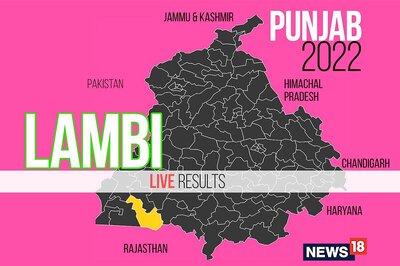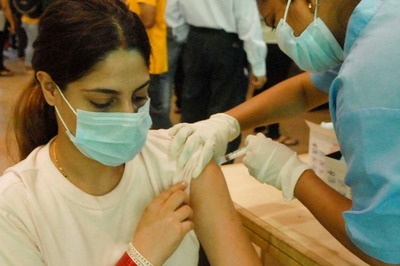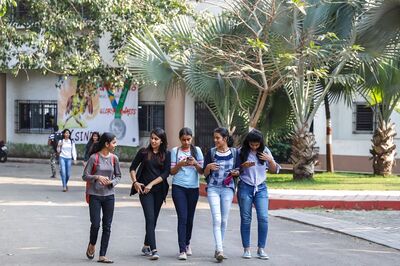
views
Sanaa: Twenty one al Qaeda members and nine Yemeni soldiers were killed in fighting on Saturday in a province where the main city was seized by Islamist militants during the chaos of the country's bloody political crisis.
Thousands of people have already fled the clashes between the army and al Qaeda in the southern province of Abyan, whose capital Zinjibar fell to the militants last month.
President Ali Abdullah Saleh's opponents have accused him of handing over Zinjibar to Islamists to reinforce his threat that the end of his three-decade rule, as demanded by protesters, would amount to ceding the region to al Qaeda.
The leader has not appeared in public since an attack on his palace eight days ago which left him with injuries that forced him to undergo surgery in Saudi Arabia, although Yemen's ambassador to Britain said on Saturday he was recovering and in a "stable condition".
"He's in his wing in the hospital, no longer in intensive care. He's conscious and talking," Ambassador Abdulla Ali al-Radhi told Reuters.
Saudi medical sources and Yemeni officials said the Prime Minister Ali Mohammed Megawar and another cabinet member injured in the attack had been taken for more surgery, and described their condition as "serious".
Saleh has withstood nearly six months of protests and multiple diplomatic attempts to ease him out all but paralysing Yemen and threatening even greater violence.
Oil giant Saudi Arabia and Western countries fear protracted chaos could give al Qaeda a foothold in the impoverished Arabian peninsula state, which straddles oil export routes and has been a cornerstone of US counterterrorism strategy.
His loyalists pledge Saleh, in his fourth decade of rule and a pillar of US counterterrorism strategy, will return in days. His opponents demand he formally hand over power immediately.
Thousands of protesters from each camp filled the streets of the capital Sanaa after Friday Muslim prayers.
Conflict
Even before protests against Saleh, which have been met with increasing violence, broke out, Yemen was gripped by conflict with separatists in the south and periodic fighting with Shi'ite rebels in the north.
In a statement sent via text message, the Defence Ministry said army forces had killed 18 "terrorists" in Zinjibar, and another three in Lawdar, a second provincial city. The army destroyed a weapons and ammunition cache in Zinjibar, it said.
State television said fighting continued across the province, and residents of an area near Zinjibar said state forces launched air strikes on the city.
Gunmen also attacked a Yemeni military truck in Lawdar, officials said, wounding 10 people including civilian passersby. The gunmen looted the vehicle, which was loaded with foodstuffs and headed for a military base, before fleeing, officials said.
Despite the violence in the south, a ceasefire has held in Sanaa since Saleh left, after more than 200 people were killed and thousands fled over two weeks in clashes between his loyalists and the forces of tribal leader Sheikh Sadeq al-Ahmar, who backs the protesters.
A group of opposition parties have told Saleh's ruling General People's Congress party it would form its own transitional assembly in a week if he did not cede power.
It is not clear that those parties have any significant influence over many of the protesters.
"The parties think the youth can continue to be their weapon in the face of Saleh, but in negotiations pay no attention to them," said Adel Saleh, an organiser with one of the youth groups active in protests demanding Saleh's departure.
"The opposition has become part of the regime we want to bring down, and are no different than it."
Many government ministries are not functioning as staff stay away and Sanaa is suffering from cuts in electricity, fuel and water supplies.
The situation has grown even more dire in Zinjibar.
Health officials have described bodies lying in the streets of the city, which once had a population of some 50,000 and is now nearly empty, and without water or electricity.
Yemen's state news agency Saba said on Thursday the UN High Commissioner for Refugees was arranging humanitarian aid for 10,000 people fleeing Abyan after attacks from al Qaeda.
Saudi's state news agency quoted a Yemeni Health Ministry official saying there could be as many as 20,000 Abyan refugees.




















Comments
0 comment